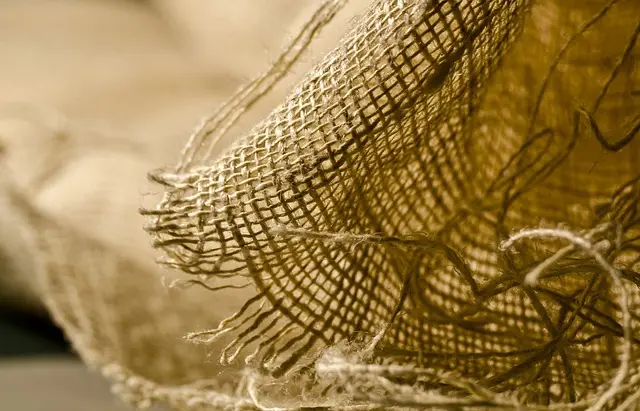Muscle soreness can result from intense physical activity, overuse, or injury, often manifesting as inflammation and heightened nerve sensitivity. Kratom, a plant from Southeast Asia, has emerged as a natural remedy for its pain-relieving properties due to its alkaloid content that interacts with opioid receptors. To utilize kratom for muscle soreness, one can prepare kratom tea by steeping kratom leaves or powder in hot water, which is particularly effective for strains like Bali or Maeng Da. The anti-inflammatory effects of kratom may contribute to its ability to soothe sore muscles, serving as a natural alternative to conventional pain relief. It's essential to measure the dosage accurately and consider individual tolerance when making kratom tea, with a typical beginner dose being a teaspoon of kratom powder per 8 ounces of water, steeped for 10 to 15 minutes. Users should exercise caution due to potential side effects and drug interactions, and always consult healthcare professionals before incorporating kratom into their muscle soreness management plan, given its legal status may vary by region. This holistic approach includes a balanced diet with anti-inflammatory foods, staying hydrated, regular physical activity, and complementary relaxation methods to enhance overall wellbeing and support muscle health.
Muscle soreness can be an inconvenient and sometimes debilitating experience, particularly for those who engage in regular physical activity. Whether due to intense exercise, a strenuous workout, or the demands of daily life, finding effective relief is paramount for maintaining well-being and ensuring continued activity. Kratom supplements have emerged as a potential remedy for muscle soreness, offering a natural approach to alleviate discomfort. This article delves into the interplay between muscle soreness and kratom’s role in providing relief, guides you through the process of crafting your own kratom tea, and integrates kratom supplements into a comprehensive muscle soreness management plan. Discover how to make kratom tea for a soothing respite from muscle pain, and learn how to incorporate this botanical supplement into your health regimen effectively.
- Understanding Muscle Soreness and Kratom's Role in Relief
- Crafting Your Own Kratom Tea for Muscle Soreness Alleviation
- Integrating Kratom Supplements into a Holistic Muscle Soreness Management Plan
Understanding Muscle Soreness and Kratom's Role in Relief

Muscle soreness can be an acute or chronic issue, often resulting from intense physical activity, overuse, or injury. The underlying mechanisms behind muscle pain are complex, involving inflammation and nerve sensitivity. When exploring natural remedies for muscle soreness relief, kratom, a tropical evergreen tree native to Southeast Asia, has garnered attention due to its potential benefits. Kratom leaves contain compounds called alkaloids, which interact with the body’s opioid receptors and can influence pain perception. For those interested in using kratom as a supplement for muscle soreness, one of the popular preparation methods is how to make kratom tea. This method involves steeping kratom leaves or powder in hot water to release the active alkaloids into the liquid, creating a beverage that can be sipped and whose effects may provide relief from muscle discomfort. The specific strains of kratom, such as Bali or Maeng Da, used in this tea can vary in their alkaloid profiles and thus their potency for pain relief; therefore, it’s important to experiment with dosages and strains to find what works best for individual needs. Additionally, the anti-inflammatory properties found within kratom may contribute to its efficacy in soothing muscle soreness, offering a natural alternative to over-the-counter pain medications. Users should approach the use of kratom with caution, however, as it can have side effects and interactions with other substances, and its legal status varies by region. Always consult with a healthcare professional before incorporating kratom into your muscle soreness relief regimen.
Crafting Your Own Kratom Tea for Muscle Soreness Alleviation

crafting your own kratom tea can serve as a potential remedy for muscle soreness, offering a natural alternative to over-the-counter pain relief. To prepare this therapeutic beverage, one must carefully select high-quality kratom powder, which is derived from the leaves of Mitragyna speciosa trees. The leaves are known for their alkaloid content, which may interact with the opioid receptors in the body, potentially providing analgesic effects. When making kratom tea, it’s crucial to accurately measure the dose as per your tolerance and needs, since the potency can vary depending on the strain and the preparation method.
Begin by boiling water and then letting it cool slightly before steep ing the kratom powder. Typically, a teaspoon of kratom powder for every 8 ounces of water is a common starting point for those new to kratom tea. Pour the appropriate amount of hot water over the kratom powder in a tea infuser or a muslin cloth-lined cup to prevent sediment from seeping into the tea. Steep the mixture for about 10 to 15 minutes. This allows the alkaloids to infuse into the water, resulting in a potent brew. After steeping, remove the infuser or muslin bag, and you have your kratom tea ready for consumption. Sipping this tea may help soothe sore muscles by potentially easing pain and promoting relaxation. Always consult with a healthcare provider before incorporating kratom into your wellness routine, especially if you have existing health conditions or are taking other medications.
Integrating Kratom Supplements into a Holistic Muscle Soreness Management Plan

When managing muscle soreness, a holistic approach often yields the best results. Integrating kratom supplements into such a plan can be beneficial due to its alkaloid profile that includes mitragynine and 7-hydroxymitragynine, which are known for their potential analgesic properties. To incorporate kratom responsibly, individuals may opt to prepare kratom tea, a method known as ‘how to make kratom tea.’ This preparation involves simmering kratom leaves or powder in water for an extended period, which can enhance the bioavailability of its active components. When preparing kratom tea, it’s crucial to adhere to recommended dosages and to be aware of local regulations regarding kratom consumption.
In addition to the tea preparation, maintaining a balanced diet rich in anti-inflammatory foods, staying hydrated, and engaging in regular physical activity can complement the effects of kratom. Additionally, incorporating relaxation techniques such as yoga, meditation, or massage therapy may aid in alleviating muscle tension and promoting overall wellness. It’s also advisable to consult with a healthcare provider before integrating kratom into any health regimen, especially if you have underlying health conditions or are taking other medications. By combining these strategies with the appropriate use of kratom supplements, individuals can develop a comprehensive plan tailored to their unique needs for muscle soreness relief.
Muscle soreness can be a significant hindrance to one’s daily activities and overall well-being. Understanding the mechanisms behind this discomfort and exploring natural remedies like kratom supplements offers a promising avenue for relief. This article delved into the role of kratom in alleviating muscle soreness, including practical guidance on crafting your own kratom tea—a potent and soothing beverage for those experiencing post-exercise discomfort. Furthermore, it highlighted how integrating kratom into a comprehensive muscle soreness management plan can complement other wellness practices. By considering the correct dosage and strain selection, individuals may find effective relief without relying solely on pharmaceuticals. For those interested in exploring kratom for muscle soreness, starting with a simple kratom tea recipe can be a gentle introduction to its potential benefits. As always, it’s crucial to consult with a healthcare provider before incorporating any new supplement into your health regimen.






